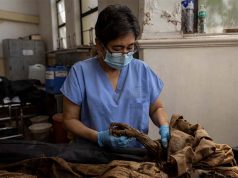
MANILA — The Philippines’ national police chief said on Monday that killings in anti-drugs operations would be minimized, with the new government focused on rehabilitation and education, in contrast to the previous administration’s crackdown.
“As much as possible, we wanted a bloodless campaign,” Police Chief General Rodolfo Azurin told foreign correspondents in a virtual forum.
While there are instances where law enforcers would have to defend themselves to ensure their safety, Azurin said, “we avoid killing of suspects.”
Azurin’s said the previous government’s drugs war policies were being reviewed to determine if they were still relevant and to see if “certain adjustments” need to be made to make sure they remain effective and efficient.
Among those under review is the so-called “Tokhang” operations that have become notorious for their deadly outcomes.
Activists say in many of the operations, suspects were not given a chance to give up, and were instead executed in cold blood. Police reject that and typically say the victims were killed because they violently resisted arrest.
More than 6,200 people have been killed in the war on drugs during former President Rodrigo Duterte’s six-year rule.
The “Tokhang” approach, where police visit homes of users and dealers and seek their surrender, while still existing, will “not be as intensive,” Azurin said.
Since the start of the President Ferdinand Marcos Jr’s term, 46 drug suspects have been killed in 18,000 anti-drug operations that have resulted in 22,000 arrests and seizure of 9.7 billion pesos ($170 million) worth of narcotics, Azurin said.
“The PNP wanted to minimize, as much as possible, the killings of people involved or engaged in drug activities,” Azurin said.
Despite Marcos’ softer approach to addressing the drug menace, he has ruled out the Philippines rejoining the International Criminal Court (ICC), whose prosecutor plans to resume an investigation into Duterte’s war on drugs, to the dismay of rights activists.
($1 = 57.1500 Philippine pesos)
— Reporting by Karen Lema; Editing by Angus MacSwan









